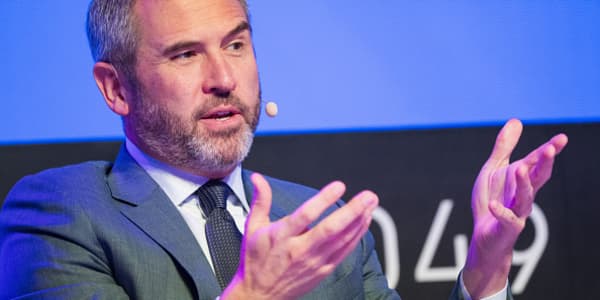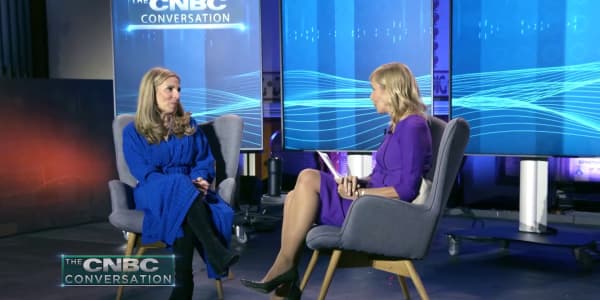The impact of artificial intelligence (AI) on jobs has become a hot topic of debate with gloomy headlines predicting that it will replace millions of jobs in the next decade.
CNBC spoke to chief executives at the World Economic Forum (WEF) in Davos, Switzerland, for their take on workplaces in the future and what effect AI will have on labor markets.
"I understand fully that people are very concerned because they really don't know what the future brings for them personally," Ulrich Speisshofer, the chief executive of ABB, told a CNBC-hosted panel on "The Future of Work" on Wednesday.
"But if you look at the facts I think we can all be a little bit more relaxed. In 1990, one-third of mankind lived below the extreme poverty line and today, it's 8 percent. And that development has been made possible through the adaptation of technology in many parts of the world, like China and India."
One of the main fears regarding AI is that robots are going to take over millions of jobs. One report, by McKinsey & Company in November, indicated that by 2030, as many as 800 million workers worldwide could be replaced at work by robots.
But Speisshofer said the countries where "robot density" was high — Germany, South Korea and Japan, all with more than 300 robots per 10,000 workers — have the lowest unemployment rates.
"So it's not about technology replacing people, it's about technology augmenting people and creating wealth and prosperity... so the uncertainty is clear, people don't know what's coming, so we need to take the people with us, we need to make sure we educate and train people."
Bill McDermott, chief executive of SAP, said the future of work was one of "augmented humanity."
"We should be optimistic. We see augmented humanity as the opportunity. It's there to enrich our lives, not take anything away from us," he said.
Mindset, not skillset
AI is fast-becoming a feature in the workplace, according to a report by software services company Infosys.
The survey of 1,000 "chief experience officers and IT decision makers" who were responsible for the deployment of AI technology within their companies showed that a majority were confident that using AI offered "measurable benefits" and that employees could be trained for the new job roles that AI would create in their firms.
Mark Weinberger, chief executive of EY, said AI was likely to bring disruption, but that was part of an evolution in the skillset demanded by employers.
"I do agree that in the long-term everything's going to be great... but there's a lot of disruption that's going to happen as we get from point A to point B," he said.
Weinberger said the skills needed in the future were going to be "extremely different."
"If you think of people in a factory, at one point they had to be moving boxes around, now they have to operate robots," he said.
EY hired 65,000 people in 2017 and would do the same in 2018, Weinberger said, adding that the company hired now "for the mindset not the skillset."
"I tell people in universities that, 'You are going to have a job that doesn't exist today, using technology that hasn't been invented yet, to solve a problem that we don't know what it is yet,'" he said.
"What are you learning in school that's going to prepare you for that? Nothing, except the adaptability of your mindset."






